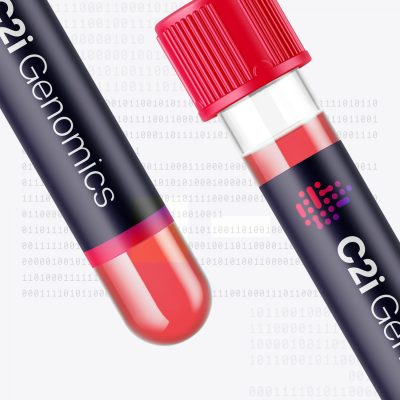
If you or a loved one has ever undergone a tumor removal as part of cancer treatment, you’re likely familiar with the period of uncertainty and fear that follows. Will the cancer return, and if so, will the doctors catch it at an early enough stage? C2i Genomics has developed software that’s 100x more sensitive in detecting residual disease, and investors are pouncing on the potential. Today, C2i announced a $100 million Series B led by Casdin Capital.
“The biggest question in cancer treatment is, ‘Is it working?’ Some patients are getting treatment they don’t benefit from and they are suffering the side effects while other patients are not getting the treatment they need,” said Asaf Zviran, co-founder and CEO of C2i Genomics in an interview.
Historically, the main approach to cancer detection post-surgery has been through the use of MRI or X-ray, but neither of those methods gets super accurate until the cancer progresses to a certain point. As a result, a patient’s cancer may return, but it may be a while before doctors are able to catch it.
Using C2i’s technology, doctors can order a liquid biopsy, which is essentially a blood draw that looks for DNA. From there they can sequence the entire genome and upload it to the C2i platform. The software then looks at the sequence and identifies faint patterns that indicate the presence of cancer, and can inform if it’s growing or shrinking.
“C2i is basically providing the software that allows the detection and monitoring of cancer to a global scale. Every lab with a sequencing machine can process samples, upload to the C2i platform and provide detection and monitoring to the patient,” Zviran told TechCrunch.
C2i Genomics’ solution is based on research performed at the New York Genome Center (NYGC) and Weill Cornell Medicine (WCM) by Dr. Zviran, along with Dr. Dan Landau, faculty member at the NYGC and assistant professor of medicine at WCM, who serves as scientific co-founder and member of C2i’s scientific advisory board. The research and findings have been published in the medical journal, Nature Medicine.
While the product is not FDA-approved yet, it’s already being used in clinical research and drug development research at NYU Langone Health, the National Cancer Center of Singapore, Aarhus University Hospital and Lausanne University Hospital.
When and if approved, New York-based C2i has the potential to drastically change cancer treatment, including in the areas of organ preservation. For example, some people have functional organs, such as the bladder or rectum, removed to prevent cancer from returning, leaving them disabled. But what if the unnecessary surgeries could be avoided? That’s one goal that Zviran and his team have their minds set on achieving.
For Zviran, this story is personal.
“I started my career very far from cancer and biology, and at the age of 28 I was diagnosed with cancer and I went for surgery and radiation. My father and then both of my in-laws were also diagnosed, and they didn’t survive,” he said.
Zviran, who today has a PhD in molecular biology, was previously an engineer with the Israeli Defense Force and some private companies. “As an engineer, looking into this experience, it was very alarming to me about the uncertainty on both the patients’ and physicians’ side,” he said.
This round of funding will be used to accelerate clinical development and commercialization of the company’s C2-Intelligence Platform. Other investors that participated in the round include NFX, Duquesne Family Office, Section 32 (Singapore), iGlobe Partners and Driehaus Capital.




















